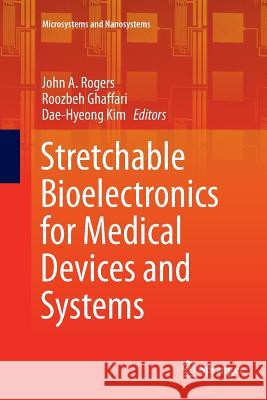Stretchable Bioelectronics for Medical Devices and Systems » książka
topmenu
Stretchable Bioelectronics for Medical Devices and Systems
ISBN-13: 9783319804071 / Angielski / Miękka / 2018 / 314 str.
Kategorie BISAC:
Wydawca:
Springer
Seria wydawnicza:
Język:
Angielski
ISBN-13:
9783319804071
Rok wydania:
2018
Wydanie:
Softcover Repri
Ilość stron:
314
Waga:
0.45 kg
Wymiary:
23.39 x 15.6 x 1.75
Oprawa:
Miękka
Wolumenów:
01
Dodatkowe informacje:
Wydanie ilustrowane











